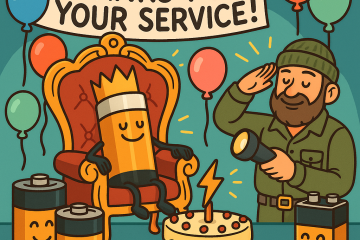Throughout the last several weeks of writing for this blog, I have repeatedly addressed why the term “emergency preparedness” does not generate genuine attention and interest from the majority of persons around us. Today, I’d like to address the scientific reasoning behind that rationale a bit more in depth as I’ve been sharing in some of my classes as of late. I think it may help us all better realize why trying to prepare for an emergency is a self-defeating approach to readiness.
 Imagine that you are a well-paid executive in New York City in September, 2001. More specifically, let’s say that you go to work everyday at the World Trade Center. On the morning of September 1, 2011, you receive a formal memo from your highest authority within your company. Perhaps it’s also endorsed by a government leader or some other external authority as well. Let’s summarize what the letter says to you and all of your thousands of co-workers.
Imagine that you are a well-paid executive in New York City in September, 2001. More specifically, let’s say that you go to work everyday at the World Trade Center. On the morning of September 1, 2011, you receive a formal memo from your highest authority within your company. Perhaps it’s also endorsed by a government leader or some other external authority as well. Let’s summarize what the letter says to you and all of your thousands of co-workers.
- Sometime in the next two weeks the building you are working in will catch fire as the result of a fuel explosion and eventually collapse.
- In order to encounter the least amount of injuries, everyone is encouraged to immediately leave the building when the alarms are sounded.
- Do not stop to gather your belongings.
- Be sure that you are wearing comfortable shoes in order for your descent to be the most successful.
- Be sure that you have a face mask on hand in order to prevent inhaling any harmful fumes.
- During the course of your evacuation, do not wait until other floors to descend before you. Everyone should exit the building orderly as soon as the alarms sound.
- Do not stop to call your loved ones or relatives.
- It is imperative that you do not attempt to go up to the roof, rather quickly and calmly descend the stairs to safety.
- Once you are at the bottom of The World Trade Center buildings, get as far away from the buildings as possible to avoid further injury.
- Yes, some of you will die a horrific death simply because you are in the immediate area of the explosion, however, for the rest of you, if you follow these instructions, your survival rate will increase by 60%.
Now. Let me ask you. If this scenario was real, how many of you would actually show up to work during those two weeks? If you did go to work, how many of you think you would be very productive during that 14 day stretch? Additionally, without the benefit of repeated drills, it’s actually unlikely, even given the warning, that you would follow all of the instructions as they were given. Just how comforting would the “60% chances of survival figure be to you either? And yet, in fact, had all of these specific instructions been followed on that horrible day of 9/11, the casualties actually would have been reduced by over 60%!
If you are honest with yourself, most of you would admit that you are likely to conveniently take your vacation days during this time. Or, if you did go to work, you’d probably hang around the lower floors as much as possible. Perhaps you’d try to still work but naturally you may be so tightly strung you would be nearly worthless to your professional responsibilities. Perhaps that night you’d stop on your way home to purchase an ax, a parachute, a fire extinguisher, a flame retardant suit, water bottles, and an oxygen mask. Many of you would also likely have spouses and children that would beg you not to take the chance of dying and go to work. Everyday you were thee they’d be unproductive as they worried about you. Still others would roll their eyes in disgust, call the author of the letter a “fear monger” who’s simply trying to cause chaos and desperation. You’d then send back a scathing retort to the author that you were going to sue them for the infliction of emotional trauma and threaten to sue them should anything go awry in the next 14 days as described.
 The bottom line is that under these circumstances you would cease to function wholly, full of your existing strengths and reliable characteristics. You’re mind would be rattled. You’d be consumed with fear instead of faith; panic instead of peace.
The bottom line is that under these circumstances you would cease to function wholly, full of your existing strengths and reliable characteristics. You’re mind would be rattled. You’d be consumed with fear instead of faith; panic instead of peace.
This is exactly why the premise of a person “preparing for an emergency” is unproductive, counter-intuitive, and self-defeating. How is this scenario any different from what the world of “emergency preparedness” would have you buy into? Sure, the timing of the disaster is not as well known as indicated in this make-believe letter. Is this scenario any different than warnings we hear frequently in the world of preparedness against an act of war, a major earthquake, hurricane, or famine And aren’t we provided with “in case of emergency…do this…” kind of instructions in the world of emergency preparedness? To me, the emergency preparedness culture seems to have woven itself in such a way that it irritates a world of confidence and calm. It preys upon our fears, panic, and most of all—dread. Yet such an approach does absolutely nothing to truly help us. All of the specialized equipment in the world is useless if we have not truly learned to accept the everyday scenarios in which we would have need of it.
I don’t know which mentally disturbed person ever came up with the term “emergency preparedness.” But in my mind it’s as oxymoronic as the phrases “Federal Budget” and “Politically Correct.” The brain simply does not work that way. In defense of a mental state that it can handle, the brain will even wrestle with and deny the reality of such a scenario. So how in the world are we supposed to prepare for a scenario which our minds won’t even let us believe?
 Think of it this way, no really successful security system salesperson would dare tell you that you were in need of the top-of-the- line model in order to avoid rape and murder, whereas the less expensive model would only protect you from robbery and moderate mayhem, right? Instead, the successful security salesperson needs to address the level of concerns that the customer has already mentally accepted and which they may easily be open to accepting in order to determine which security system is best for them.
Think of it this way, no really successful security system salesperson would dare tell you that you were in need of the top-of-the- line model in order to avoid rape and murder, whereas the less expensive model would only protect you from robbery and moderate mayhem, right? Instead, the successful security salesperson needs to address the level of concerns that the customer has already mentally accepted and which they may easily be open to accepting in order to determine which security system is best for them.
If a particular “emergency preparedness” item does not have a place in your everyday life, then it won’t have a welcome part to play in a highly strained and threatened life scenario either. Focus on the everyday preparedness of independence from vulnerabilities, knowledge, etc. and then the reliable catastrophic preparedness will come. The everyday warriors are the ones who are best seasoned for the once in a lifetime battles. And that is what successful preparedness is really all about.
To see our upcoming event schedule, click here
Check out our in-home-course programs
Subscribe to Preparedness Pro today and never miss a thing!
For any questions or comments on this article, please leave a comment on the blog site so that everyone can benefit!
Copyright Protected 2010, Preparedness Pro and Kellene. All Rights Reserved. No portion of any content on this site may be duplicated, transferred, copied, or published without written permission from the author. However, you are welcome to provide a link to the content on your site or in your written works.



7 Comments
jamie · March 16, 2010 at 1:27 am
Good post, I think it’s easy to see how your scenario could happen. Probably after a couple of days of no drills folks would revert to “Normal”, nothing is going to happen mindset.
You are right again on making this a life choice, an every day thing. Making a meal out of the pantry, baking your own bread, buying seeds or getting something on sale. These are great little victories for self-reliance.
My favorite 2 words that should never go together is “Nuclear Medicine”.
Ed Vaisvilas · March 16, 2010 at 9:31 am
I recall reading that the majority of workers in the WTC had no idea how to access the stairs. In a former job I also held the positions of Health & Safety/Fire Officer. During new employee induction, it became a habit to quiz people at the end of my presentation, asking them where more than one emergency exit was. One thing I noticed, during my many “planned” fire alarm drills, was that people tended to gravitate toward the most convenient exits, rather than the closest. My attempt to stop that bad habit was to post assistants at those convenient exits, holding signs which said “Fire Here”.
Lucy Stern · March 16, 2010 at 12:37 pm
I have been a dry pack specialist for over 20 years and now have been called as the stake “emergency preparedness” person…. We are going to have an emergency preparedness fair on May 29th…. What should I call it instead of emergency preparedness?
Kellene · March 16, 2010 at 3:36 pm
Lucy, if it were me, I would just call it a Preparedness Fair.
Heritage Heck · March 17, 2010 at 12:41 am
Kellene,
By reading many of your past pages I suspected that you had already watched this important video about 9/11, but now I’m not so sure. Just in case you haven’t watched it, and for the benefit of others, here it is:
http://www.youtube.com/watch?v=7E3oIbO0AWE
Kellene · March 17, 2010 at 1:17 am
That’s a pretty controversial youtube video for some, but I’ll allow it. I think it’s important to consider various viewpoints.
jamie · March 19, 2010 at 12:51 am
We are having a “self-reliance fair” here Lucy. I do think it is a better description, but I don’t think there is much you can do about the “stigma” of being ready. If you are ready you are either a right wing militia member or a grass-smoking hippie still stuck in the 60’s. I’m not sure how folks resolve that dichotomy.
I guess it comes back to saying “If I have to explain it, you’ll never understand. If you understand, I don’t have to explain it.”
On the good side I think a lot of folks in the USA are starting to “get it” for whatever reason. It may be a “shop local”, know your food and what’s in it, or economics or disasters happening. We are in a movement that covers all of politics, left and right. Folks need the same things no matter what politics they believe.
Comments are closed.